The Role of Intuition in Sports: Trusting Your Instincts Under Pressure
16 March 2025
Sports, at its core, is a battle of mind, muscle, and reflexes. While physical prowess and hours of practice are undeniably important, there's another often-overlooked factor that can make or break an athlete’s performance: intuition. Yep, that gut feeling, that split-second decision that seems to bypass logic and training. But what role does intuition really play in sports? How can athletes trust their instincts, especially when the pressure’s on?
Let's dive deep into the world of sports psychology and uncover why trusting your instincts under pressure can be the key to unlocking peak performance.
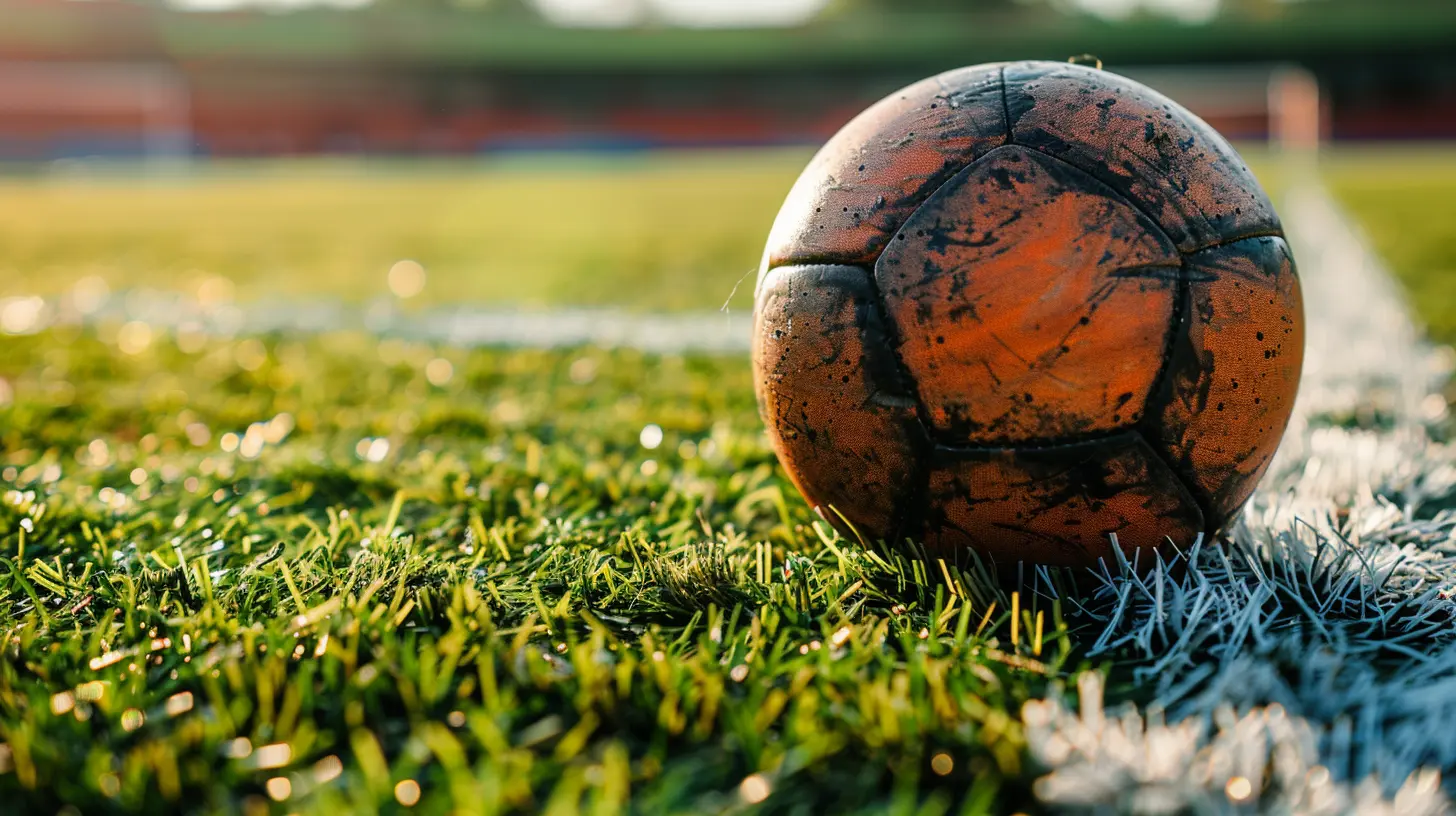
What Exactly is Intuition?
Before we get into the nitty-gritty of sports, it's essential to define what we mean by "intuition." In its simplest form, intuition is the ability to understand something instinctively, without the need for conscious reasoning. It's that little voice in your head, the one that tells you to zig when you might’ve been thinking about zagging.In the world of sports, intuition often shows up as a “gut feeling” or a sudden decision that seems to come from nowhere. Think of a basketball player who pulls off a no-look pass, or a soccer striker who knows exactly where the ball will land before it even gets kicked. These moments of brilliance often stem from a deep, subconscious understanding of the game—intuition in action.
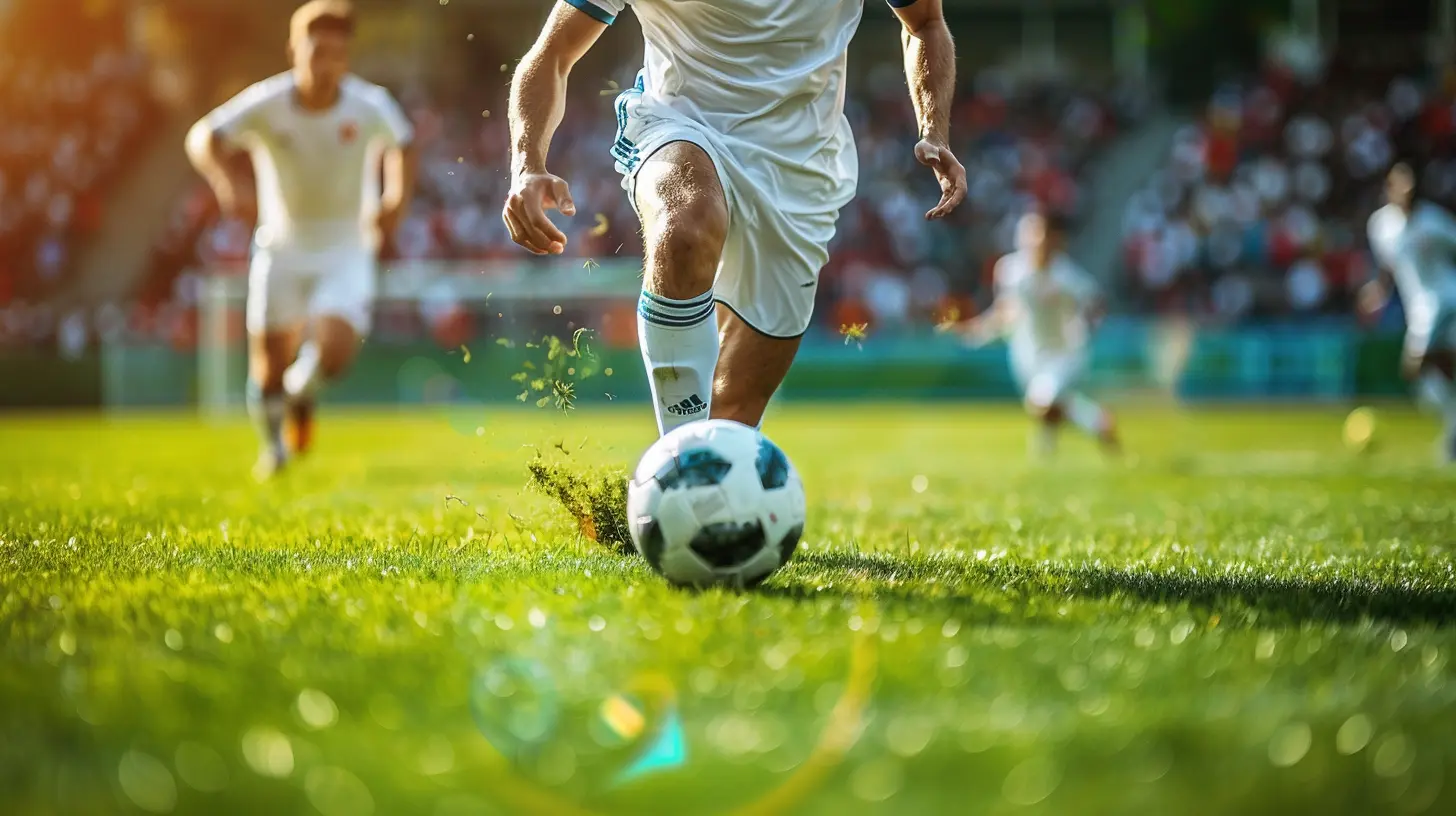
How Intuition Develops in Athletes
Intuition isn’t something athletes are born with. Sure, some people might have sharper instincts than others, but intuition is largely a product of experience. Over time, athletes build up a mental "database" of patterns, movements, and strategies, often without even realizing it. This database comes from hours of practice, repetition, and exposure to game scenarios.Here’s the thing: the brain is like a sponge, soaking up every experience, every move, and every outcome. Over time, it starts making connections and generating patterns. When an athlete is in the heat of the moment, their brain accesses this vast database and comes up with a solution before they even have time to consciously think about it.
In other words, intuition is like having a supercomputer in your brain that’s always running in the background, churning out answers faster than you can blink.

The Science Behind Intuition in Sports
Alright, let's get a tad scientific here. Trust me, it’s cool stuff.Intuition is closely linked to the brain's subconscious processes. When athletes are faced with high-pressure situations, their brain is forced to make rapid decisions based on limited information. The brain’s prefrontal cortex, responsible for logical thinking and decision-making, is often bypassed in these moments. Instead, the brain relies on the basal ganglia—a region associated with habits, routines, and learned skills.
This is where experience comes in. The more an athlete has been exposed to certain game situations, the better their basal ganglia becomes at recognizing patterns and predicting outcomes. This is why elite athletes seem to "just know" what’s going to happen next—they’ve subconsciously trained their brains to make these rapid decisions based on past experiences.
It’s like muscle memory, but for the brain.
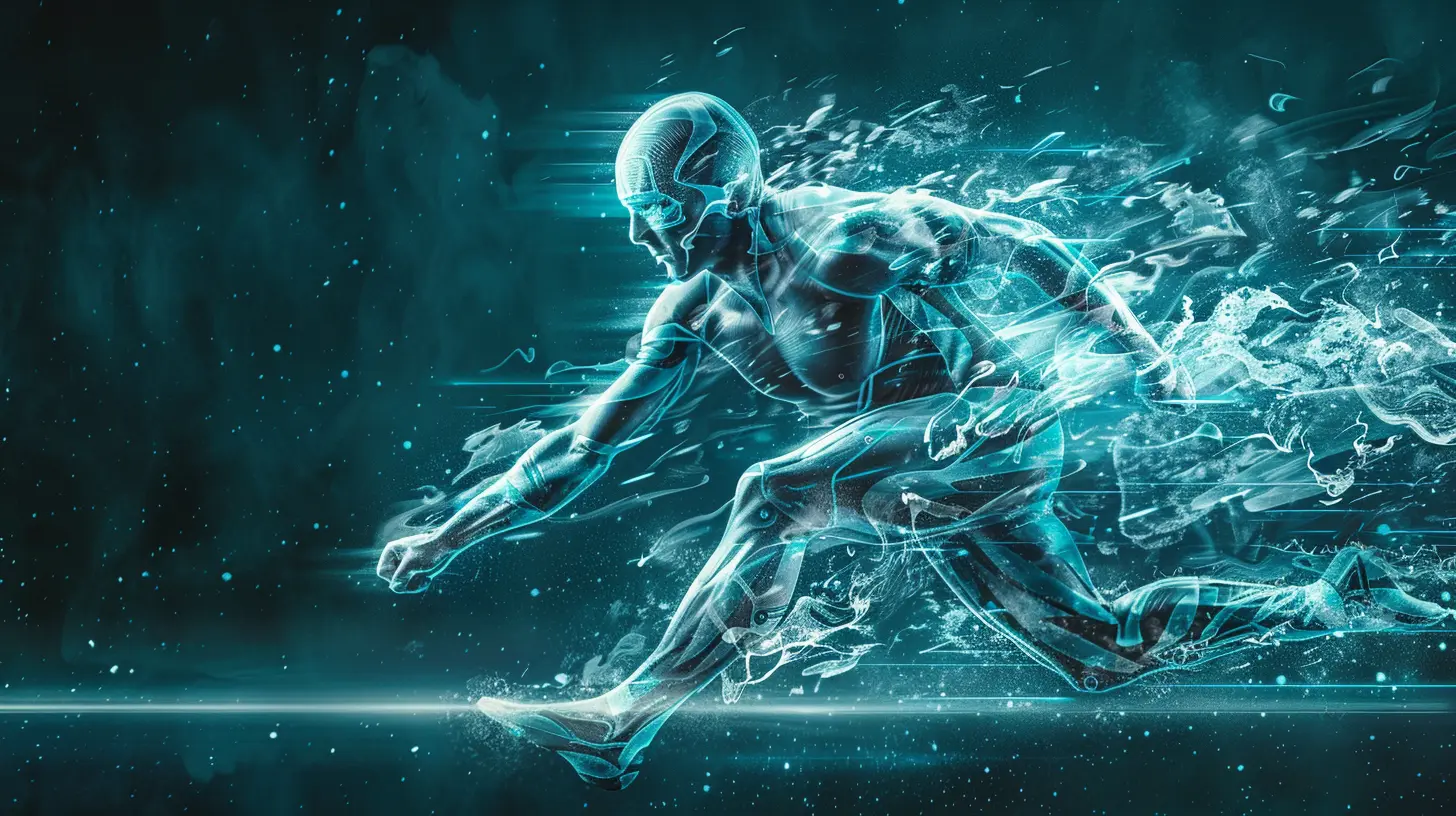
Why Trusting Your Instincts Under Pressure Matters
Pressure can do funny things to people. It can make even the most seasoned athletes second-guess themselves or overthink a situation. And here's where trusting your instincts becomes crucial.When the stakes are high, and you don’t have time to weigh pros and cons, it’s often best to rely on that gut feeling. Overthinking in these moments can slow you down. If you've ever watched a player hesitate before taking a shot or passing the ball, you know what I’m talking about. That split-second hesitation can be the difference between glory and defeat.
Trusting your instincts allows you to be decisive and act quickly, and in sports, speed is everything. Whether you're reacting to an opponent's move or making a crucial play, letting your intuition take the reins can lead to better outcomes.
Think of it this way:
Imagine you're a surfer riding a massive wave. There’s no time to analyze the wave's height, direction, or speed. You simply feel it. You lean into it, make adjustments on the fly, and trust your body to respond. The moment you start overthinking, you wipe out. Sports, in many ways, are just like surfing. You’ve got to ride the wave of your instincts.Examples of Intuition in Action
1. Michael Jordan’s Last-Minute Shots
Michael Jordan, arguably the greatest basketball player of all time, was known for his ability to sink game-winning shots with mere seconds left on the clock. Was it just skill? Of course, but there was something more. Jordan often talked about being “in the zone,” where everything around him slowed down, and he just knew what to do. His instincts took over, and the results speak for themselves.2. Lionel Messi’s Vision on the Field
When you watch Lionel Messi play soccer, it’s like watching a chess grandmaster move pieces on a board. He seems to have eyes in the back of his head, knowing precisely where his teammates and opponents are without even looking. Messi’s ability to make split-second decisions stems from years of playing the game, allowing his intuition to steer him through complex situations.3. Serena Williams’ Court Awareness
Serena Williams has dominated the tennis world for years, and a big part of her success comes from her incredible court awareness. Her ability to anticipate her opponent’s moves and react almost instantly is a prime example of intuition in action. Serena doesn’t always have time to think about where the ball is going; she just knows.
Balancing Intuition and Strategy
Now, before you think that sports are all about gut feelings and instincts, let’s take a step back. Intuition is powerful, but it’s not a replacement for strategy, training, or preparation. In fact, the best athletes are the ones who can balance both—trusting their instincts while staying grounded in the fundamentals of their sport.Think of intuition as the turbo boost on a race car. It’s not the engine (that’s your training and strategy), but when used at the right moment, it can give you that extra edge.
When Intuition Fails
Of course, intuition isn’t foolproof. Sometimes, gut feelings lead to poor decisions. Just like how a poker player might misread a bluff, an athlete can misjudge a situation. So, should athletes always trust their instincts?Not necessarily. The key is to know when to rely on intuition and when to fall back on strategy and analysis. Experience plays a big role here. The more seasoned an athlete is, the better they’ll be at distinguishing between reliable gut feelings and misguided hunches.
How Athletes Can Sharpen Their Intuition
The good news? Intuition can be trained, just like any other skill. Here are a few ways athletes can sharpen their instincts:1. Repetition
The more you practice, the more situations you expose yourself to, and the more patterns your brain will recognize. This is why athletes spend countless hours in practice—muscle memory and intuitive decision-making go hand in hand.2. Visualization
Many athletes use visualization techniques to mentally rehearse scenarios they might face during a game. By visualizing different plays or outcomes, they’re essentially training their brain to recognize patterns and respond instinctively, even before they hit the field or court.3. Mindfulness and Focus
When athletes are fully present in the moment, they’re better able to tap into their intuition. Mindfulness and meditation practices can help athletes stay calm under pressure, allowing them to trust their gut and make quicker decisions.4. Game Film Analysis
Watching game footage isn’t just about analyzing strategy—it’s about recognizing patterns. By watching their own games and studying their opponents, athletes can build up that mental database of scenarios, helping their intuition become more accurate during real-time play.Wrapping It Up: The Power of Trusting Your Instincts
In the fast-paced world of sports, where milliseconds matter, intuition can be an athlete’s best friend. It’s that secret weapon that allows players to make split-second decisions, react faster than their opponents, and navigate high-pressure situations with ease.But like any skill, intuition needs to be honed through experience, practice, and self-awareness. By trusting their instincts while staying grounded in strategy and fundamentals, athletes can push their performance to new heights. So next time you're watching a game and see a player pull off a seemingly impossible move, remember: it might just be their intuition leading the way.
all images in this post were generated using AI tools
Category:
Sports PsychologyAuthor:

Preston Wilkins
Discussion
rate this article
16 comments
Enid McMichael
Great insights on the significance of intuition in sports! Trusting our instincts truly makes a difference in high-pressure situations.
April 5, 2025 at 8:58 PM

Preston Wilkins
Thank you! I'm glad you found the insights valuable. Trusting our instincts really can be a game-changer in those critical moments!
James Bellamy
Intuition is vital in sports; it allows athletes to make split-second decisions that can define a game. Trusting those instincts, especially under pressure, can lead to remarkable moments on the field that strategy alone can't achieve.
April 3, 2025 at 10:18 AM

Preston Wilkins
Absolutely! Intuition plays a crucial role in sports, enabling athletes to react swiftly and effectively when it matters most. Trusting those instincts often creates unforgettable moments that strategy alone may miss.
Phaedra Jordan
Intuition in sports: the secret sauce that turns 'uh-oh' moments into game-winning magic! 🏅✨
April 2, 2025 at 11:26 AM

Preston Wilkins
Absolutely! Intuition can transform high-pressure situations into opportunities for success, showcasing the power of instinct in sports. 🏅✨
Valeris Becker
Intuition in sports can be a game-changer when pressure hits.
April 1, 2025 at 4:02 AM

Preston Wilkins
Absolutely! Trusting your instincts can lead to split-second decisions that make all the difference in critical moments.
Owyn Malone
In the high-stakes arena of sports, intuition is your secret weapon. Trusting your instincts can turn the tide of a game, transforming pressure into opportunity. Embrace the unknown, listen to your gut, and let your instincts guide you. Greatness is often just a heartbeat away—be bold, be fearless!
March 31, 2025 at 7:06 PM

Preston Wilkins
Thank you for highlighting the power of intuition in sports! Trusting our instincts can indeed be a game-changer, especially in high-pressure moments. Embracing that inner voice is crucial for achieving greatness.
Lila Myers
“Intuition in sports: when your brain says ‘pass’ but your gut says ‘shoot’—trust the gut, always!”
March 31, 2025 at 12:18 PM

Preston Wilkins
Absolutely! Trusting your gut can often lead to those game-changing moments. Intuition is a powerful tool in high-pressure situations.
Nyx McCarron
Great article! Trusting instincts can be crucial in high-pressure sports situations, allowing athletes to make split-second decisions that can change the game.
March 24, 2025 at 9:51 PM

Preston Wilkins
Thank you! I'm glad you found the article insightful. Trusting instincts truly is vital for athletes in those high-pressure moments!
Colette Mathews
Great insights on intuition in sports! Trusting instincts truly can make a difference under pressure. Well done!
March 24, 2025 at 12:28 PM

Preston Wilkins
Thank you! I appreciate your feedback and glad you found the insights valuable!
Faenor Jenkins
Great insights on the significance of intuition in sports! Trusting one’s instincts can be a game-changer, especially under pressure. It’s fascinating how athletes balance analytical thinking with gut feelings. Looking forward to seeing more examples of intuition shaping key moments in sports!
March 23, 2025 at 1:59 PM

Preston Wilkins
Thank you for your thoughtful comment! I'm glad you found the insights valuable. Intuition truly plays a crucial role in sports, and I'm excited to explore more examples in the future!
Bradley McKinstry
Trust your instincts! In sports, intuition can be your greatest ally. Embrace the pressure, listen to your gut, and let your natural talent shine. Greatness often lies just beyond your comfort zone!
March 23, 2025 at 5:26 AM

Preston Wilkins
Thank you for your insightful comment! Embracing intuition can indeed unlock our true potential in sports and help us thrive under pressure.
Nicholas McAnally
Great insights! Trusting instincts can be a game changer in high-pressure situations. Athletes must balance intuition with strategy to make quick decisions. Harnessing this inner voice not only improves performance but also fosters confidence. A valuable read for competitors at all levels!
March 22, 2025 at 3:44 AM

Preston Wilkins
Thank you for your thoughtful comment! I'm glad you found the insights valuable—balancing intuition and strategy is indeed crucial for athletes.
Juniper Morales
What an intriguing perspective on intuition in sports! It’s fascinating how instinct can sometimes outweigh analysis, especially under pressure. I wonder how athletes balance their training with these gut feelings. It would be interesting to explore specific examples where intuition made a decisive difference in high-stakes moments.
March 21, 2025 at 7:39 PM

Preston Wilkins
Thank you! Balancing training and intuition is key for athletes. Examples like Michael Jordan's game-winning shots and Serena Williams' on-court decisions highlight how gut feelings can lead to decisive moments.
Mabel McGowan
Intuition in sports is like that last slice of pizza at a party—sometimes you just know it’s calling your name, even if everyone else says 'wait.' Trust your gut and dive in!
March 18, 2025 at 1:26 PM

Preston Wilkins
Great analogy! Just like that last slice, trusting your intuition in sports can lead to unexpected and rewarding outcomes.
Runehart Murphy
What an intriguing perspective! It’s fascinating how intuition can shape crucial moments in sports. I wonder, do athletes rely more on intuition or training in high-pressure situations? Could this vary by sport or individual experience?
March 17, 2025 at 11:18 AM

Preston Wilkins
Thank you! Athletes often balance intuition and training under pressure, and this reliance can indeed vary by sport and individual experience. Both elements play vital roles in making split-second decisions.
Nyxaris Rios
Intuition: because GPS can't navigate those game-time gut feelings!
March 17, 2025 at 4:01 AM

Preston Wilkins
Absolutely! Intuition plays a crucial role in sports, allowing athletes to make split-second decisions that GPS can't predict. Trusting those gut feelings can be the difference between victory and defeat.
Zander Rhodes
Intuition fuels success in high-pressure moments!
March 16, 2025 at 7:35 PM

Preston Wilkins
Absolutely! Trusting your instincts can be a game-changer, especially in high-pressure situations where quick decisions are crucial.
MORE POSTS

How New Rules Are Affecting Sponsorship Deals and Brand Partnerships

Moments That Defined the True Meaning of Sportsmanship
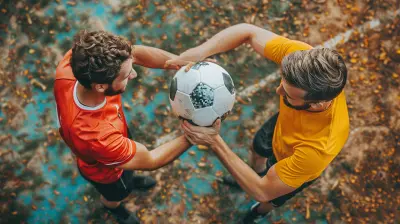
The New Rules of Sportsmanship: Whats Changed in Recent Years
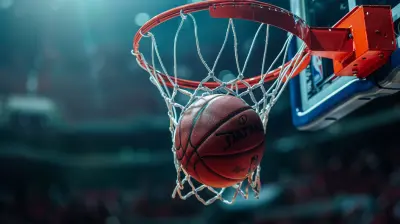
Hidden Secrets of Elite Scorers in Basketball
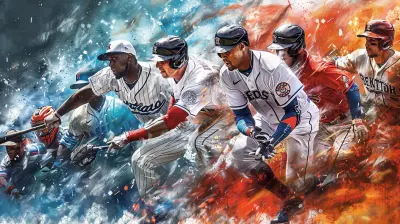
The Anatomy of a Championship Run in Major Sports Leagues
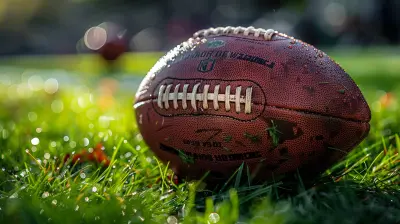
The Hidden Impact of New Regulations on Player Safety

The Impact of New Rules on College Sports: Preparing for the Pros

The Hidden Heroes: Unsung Champions of Sportsmanship

The Importance of Proper Breathing Techniques During Lifts
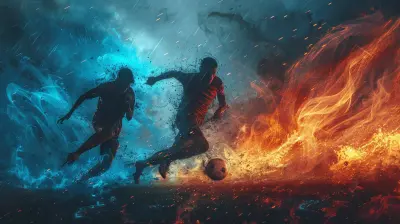
Tactical Triumphs and Blunders in Last Night’s Thriller